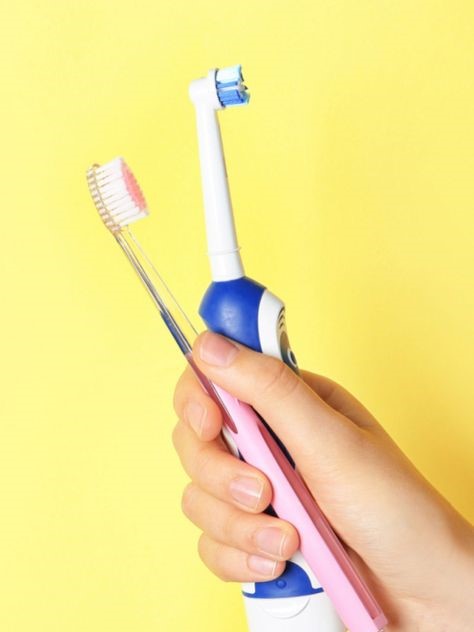
When it comes to keeping your teeth clean and healthy, the debate between manual and electric toothbrushes has been ongoing. Let’s break down the pros and cons of each to help you decide which is best suited for your oral hygiene needs.
Manual Tooth Brush
Pros:
- Cost-effective: Manual toothbrushes are generally less expensive than electric ones.
- Easy to travel with: They’re portable and don’t require batteries or charging.
- Simple to use: No learning curve, just brush as you’ve always done.
Cons:
- Requires more effort: Manual brushing relies on your arm strength and technique.
- Might be less effective: It can be challenging to maintain consistent pressure and brushing angles.
Electric Tooth Brush
Pros:
- Efficient cleaning: Electric toothbrushes often have rotating or vibrating bristles for thorough cleaning.
- Built-in timers: Many models have timers to ensure you brush for the recommended two minutes.
- Easier for certain conditions: Those with arthritis or dexterity issues may find electric brushes easier to use.
Cons:
- Higher cost: Electric toothbrushes can be more expensive upfront.
- Need for charging or batteries: They require power, so you’ll need to recharge or replace batteries.
Which is Right for You?
- If you have specific oral health issues:Electric toothbrushes may offer more thorough cleaning, especially for those with braces, gum disease, or other conditions.
- If you have dexterity issues:Electric toothbrushes can be gentler on your wrist and hand.
- If you prefer simplicity and cost-effectiveness:A manual toothbrush might be the better choice.
Ultimately, the best toothbrush is one that you will use consistently and correctly. Whether manual or electric, the key is to brush for at least two minutes, twice a day, using proper technique.
Consult with your dentist to get personalized advice based on your oral health needs. They can help you make the right decision to keep your smile bright and healthy.


